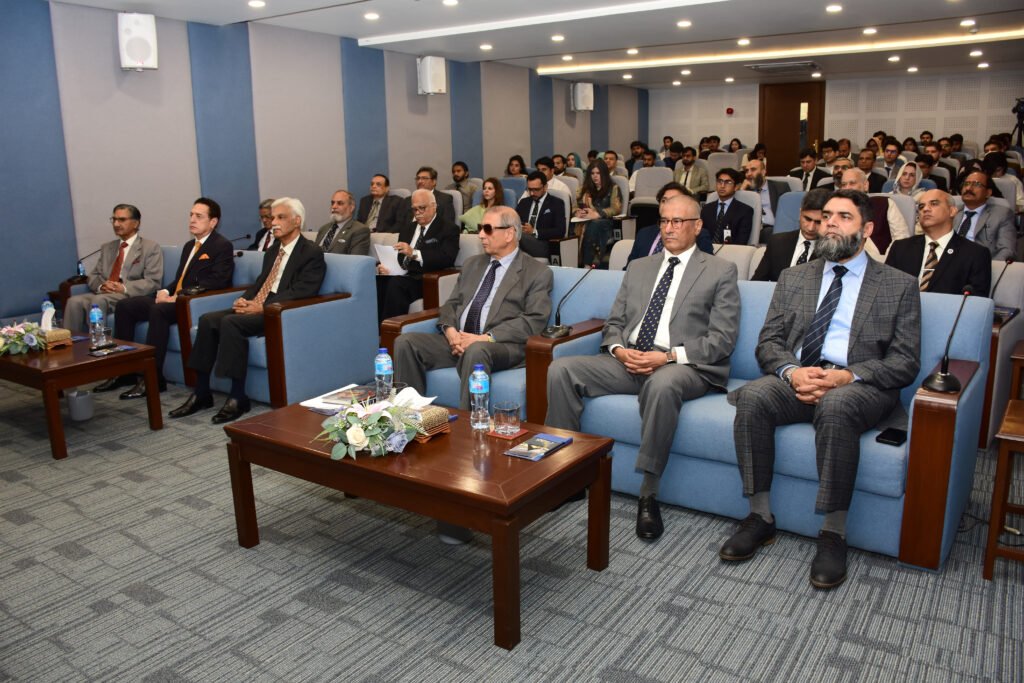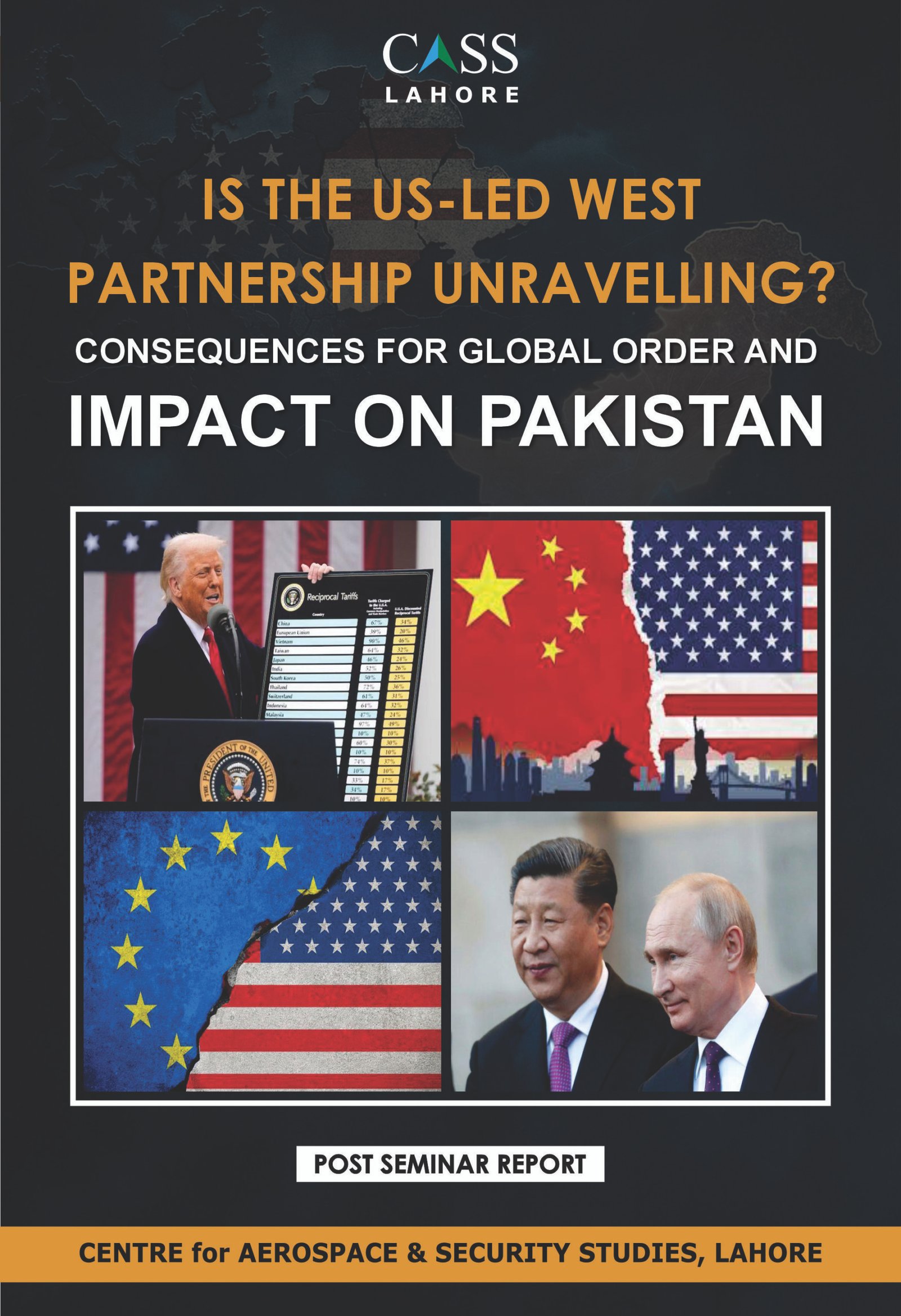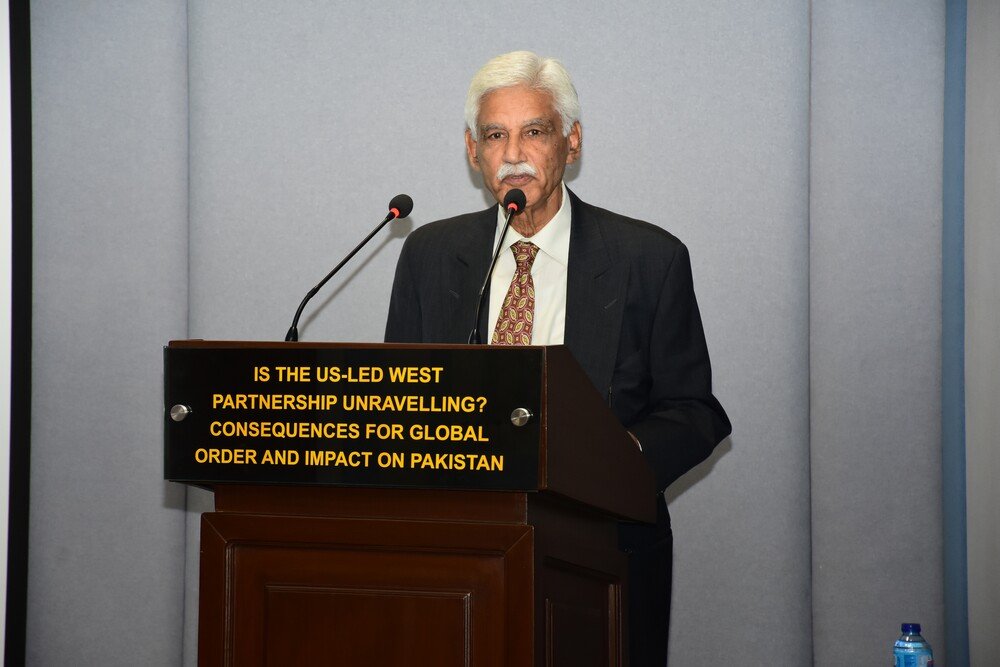
Seminar
Is the US-led Western Partnership Unravelling? Consequences for Global Order and Impact on Pakistan
About The Event
Under the second Trump administration, the US-led Western partnership — long a cornerstone of the global order — appears to be facing significant strains, raising questions about its future cohesion. Diverging priorities, internal political shifts, and US trade wars, particularly under the “Make America Great Again” policy, have placed relations with EU allies under stress. Furthermore, the United States has consistently urged the EU to take greater responsibility for its defence and increase contributions to NATO, emphasising more balanced burden-sharing within the alliance. This pressure has intensified amid the ongoing Ukraine conflict.
Two days after a fiery exchange with the US President at the White House, the Ukrainian President was invited to attend a summit of European leaders in London. The UK Prime Minister, Keir Starmer, stated, “We are at a crossroads in history today.” The summit agreed, among other things, to develop a “coalition of the willing” to defend a deal in Ukraine and to guarantee peace thereafter. While both sides remain aligned in supporting Ukraine, differing approaches to defence spending and strategic priorities have created friction, underscoring the complexities of transatlantic cooperation in a shifting geopolitical landscape.
Such apparent fissures could have profound consequences for the global order, potentially weakening collective responses to crises, undermining international institutions, and creating power vacuums that emerging powers may seek to fill. A fragmented global order may exacerbate regional instability, complicating Pakistan’s efforts to navigate its geopolitical and economic challenges. Pakistan would need to adjust to this evolving dynamic. The seminar discussed various aspects of this evolving situation and offered policy choices for Pakistan.

Key Takeaways
- A Fractured US-led Global Order and Its Repercussions
President Trump’s “America First” policy has fundamentally altered the complexion of the post-World War II world order. The era of US global dominance is gradually fading, and the US-Europe partnership is weakening. The erosion of the rule-based order has led to the fragmentation of globalisation, a surge in unilateralism, nationalism, and protectionism, and the weakening of multilateral institutions like the United Nations.
- China’s Ascent and the Asian Century
The rise of China as a formidable economic, technological, and strategic power, alongside an assertive Russia, has seriously dented the global dominance of the US and is reshaping global geopolitics and geo-economics, marking the 21st century as the “Asian Century”.
- The Emerging US-Europe Security Schism
The US-Europe security relationship has also come under stress. Burden-sharing in security alliances is being emphasised. The European powers are reconsidering their strategic autonomy amid diminishing American reliability. However, given the deep-rooted nature of their relationship, it is premature to conclude that the Western partnership is unravelling. There is no imminent threat to NATO.
- Strategic Consequences of Indo-US Alignment for Pakistan
The Indo-US alignment poses a serious threat to regional stability and Pakistan’s security, necessitating a stronger strategic and technological partnership with China. At the same time, Pakistan should enhance its constructive engagement with the US. Pakistan should preserve its credible security deterrence against India.
- Challenges to Developing Countries
Developing countries, including Pakistan, face vulnerabilities in international trade, aid flows, climate financing, and debt burdens, which could hinder economic and social progress.
- Strategic Opportunities
The growing rifts among Western powers also provide opportunities for those with vision and agility. A more autonomous Europe opens new avenues of cooperation in defence, technology, and sustainable development. Pakistan can avail this moment to redefine its global position.
- National Power in a World Experiencing a Civilisational Shift
As the world morphs towards a genuinely multi-civilisational and multicultural framework, the power of a nation will be determined by its economic and technical strength, coupled with its scientific advancements.
Policy Considerations
- Ensure National Security and Economic Well-being
Pakistan needs to closely monitor and adjust to the changing global and regional security environment to ensure national security and economic well-being, especially in light of increasing tensions with India.
- Deepen Strategic and Economic Ties with China:
Pakistan must continue to enhance and deepen its strategic partnership with time-tested China in political, strategic, security, and economic domains to maintain regional balance and sustainable national development. The China-Pakistan Economic Corridor (CPEC) is vital for fostering long-term economic growth and development.
- Balanced Relations with Global and Emerging Powers
Pakistan must simultaneously maintain balanced and constructive engagement with the United States, the EU, Russia, ASEAN member states, emerging economies, and the Muslim World, in particular the GCC.
- Deeper Engagement with a More Autonomous Europe
A more autonomous Europe opens new avenues in defence, technology, and sustainable development. Pakistan should act with clarity, agility, and foresight in order to harness this potential.
- Capitalise on Asia’s Economic Rise
Pakistan should seek to integrate more deeply with Asian economies, including those of China, Japan, South Korea, and the ASEAN and Central Asian member states, which are gaining global economic influence.
- Comprehensive Economic Reforms
Economic strength should be at the core of national power. There is an urgent need for comprehensive structural reforms to unleash the potential of the economy. These must include broadening the tax base, resource mobilisation from the private sector, improving the investment climate, expanding the export base, and strengthening human capital.
- SEZs and Acquisition of Technology
The early and strategic development of Special Economic Zones, especially those linked with CPEC, could significantly enhance resource mobilisation and engender sustainable growth and development. Pakistan must prioritise knowledge acquisition, scientific progress, and technological advancement to remain globally competitive.
- Craft Strong Narratives
There is an urgent need to develop strategic narratives to improve global perceptions and advance Pakistan’s national interests.

Post Event Report
A comprehensive report capturing expert analyses, strategic insights, key recommendations, media coverage, and event highlights.
Guest Speakers

Ambassador Javid Husain (Retd)
President, Lahore Council for World Affairs
Dr Rizwan Naseer
Senior Research Fellow and Director Research and Development, IRS


Mr Shahid Najam
Vice Chairman, SJB Institute of Public Policy

Event Chair
Air Marshal Asim Suleiman (Retd)
President, CASS Lahore

Event Coordinator
Ambassador Muhammad Haroon Shaukat (Retd)
Director Foreign Affairs, CASS Lahore

Master of The Ceremony
Ezba Walayat Khan
Research Assistant, CASS Lahore








CASS LAhore

The Centre for Aerospace & Security Studies (CASS) was established in July 2021 to inform policymakers and the public about issues related to aerospace and security from an independent, non-partisan and future-centric analytical lens.
CASS Newsletter

@2025 – All Right Reserved with CASS Lahore.
- Home
- About Us
- Research Domains
- Publications
- Events
- Gallery
- Contact Us
@2021 - All Right Reserved. Designed and Developed by PenciDesign



